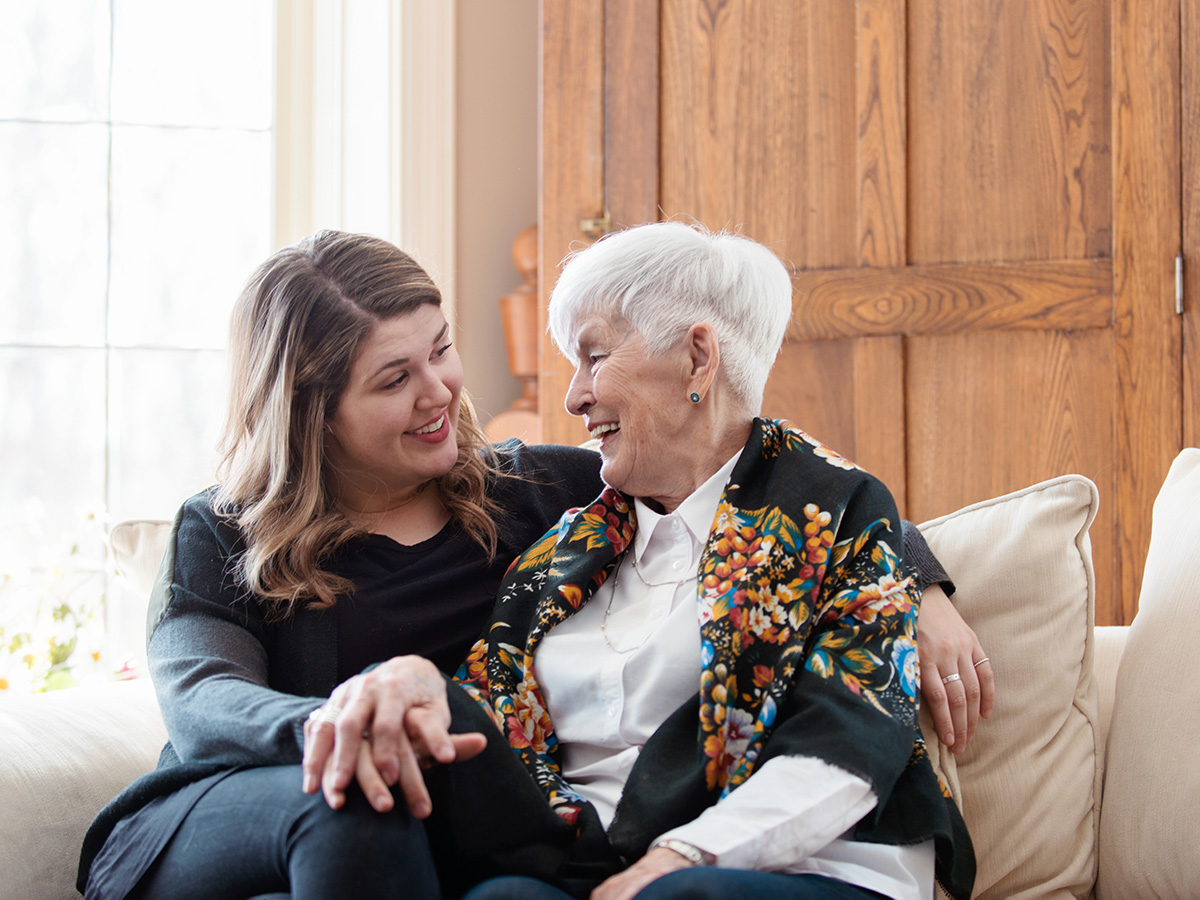Stroke
If a stroke occurs, Virtua Neurosciences offers 24/7 care from the region's foremost experts. If you or a loved one has had a stroke, we provide high-level care.

Often referred to as a "brain attack," a stroke is a medical emergency that occurs when blood flow to the brain is interrupted. When this happens, you need comprehensive, expert care as quickly as possible. And our team is here to help, both before, during and after a stroke.
Signs and Symptoms of Stroke
During a stroke, your brain cells stop receiving oxygen. Quickly identifying the signs and symptoms of stroke could make all the difference in preventing long-term damage.
That's why it's important to know the BE FAST acronym, which highlights the signs of a stroke:
- Balance: An unexplained loss of balance, unable to sit up right or walk in a straight line.
- Eyes: Vision loss, blurry vision, or even seeing double.
- Face: A sudden face drop or numbness, particularly on one side of the face. It is especially noticeable when a person smiles.
- Arm: Arm weakness or numbing, especially on one side of the body. Ask the person to raise both arms and look for one arm to drift downward.
- Speech: Look for slurred speech or mixed words. Ask the person to repeat a simple sentence.
- Time to call 911: If the person shows any of these symptoms, even if the symptoms go away, call 911 and go to a hospital immediately.
Common conditions that we can help treat after a stroke include:
- Weakness, paralysis, and problems with balance or coordination.
- Pain, numbness, or burning and tingling sensations.
- Fatigue, which may continue after you return home.
- Inattention to one side of the body, also known as neglect; in extreme cases, you may not be aware of your arm or leg.
- Urinary or bowel incontinence.
- Speech problems or difficulty understanding speech, reading, or writing.
- Difficulty swallowing.
- Memory problems, poor attention span, or difficulty solving problems.
- Visual problems.
- Depression, anxiety, or mood swings with emotional outbursts.
- Difficulty recognizing limitations caused by the stroke.
Types of Stroke
There are three main types of stroke, each featuring unique characteristics and causes:
Ischemic Stroke
This occurs when a blood vessel supplying blood to the brain becomes blocked. According to the American Stroke Association, it accounts for 87% of all strokes.
Hemorrhagic Stroke
This happens when a blood vessel in the brain weakens and ruptures.
Transient ischemic attack (TIA)
This is commonly referred to as a "mini-stroke." It's caused by a temporary blood clot and is a warning sign for a full-blown stroke.
Stroke Treatment at Virtua
When it comes to stroke, we believe that "time is brain," meaning you need to act fast to prevent or limit long-lasting damage. In fact, we recommend seeking emergency care within three hours of stroke symptoms for optimal outcomes.
Here's how we deliver the high-quality care you need, as quickly as possible:
- Stroke expertise: Based at Virtua Our Lady of Lourdes Hospital, the Penn Medicine | Virtua Health Neurosciences Program provides you access to nationally recognized neurosurgeons, neurologists, radiologists, neuro-hospitalists, and clinical and auxiliary staff. We work closely together to deliver the expert treatment and follow-ups you need.
- 24/7 teleneurology: Our emergency room physicians have around-the-clock access to neurologists via virtual communications. That means rapid evaluations to administer appropriate treatments and care.
- Hybrid operating room: Our state-of-the-art facilities feature advanced imaging equipment. This allows our team to use microsurgery and other techniques to remove stroke-causing blood clots, stop bleeding in the brain, or open a blocked carotid artery. The neurosurgery team at Virtua Our Lady of Lourdes has received the Joint Commission’s Gold Seal of Approval® for excellence in surgically removing clots to quickly and safely restore blood flow to the brain.
- Post-stroke care: Stroke affects everyone differently. That's why our neurologists, neurosurgeons, physical therapists, and specialists work with you and your care team to develop personalized treatment plans to manage symptoms and improve your quality of life.
Virtua Stroke Specialists
Available 24/7, the Virtua Neurosciences Program is here for you when you need us most.
The Virtua Difference for Stroke Care
Recognized care
The neurosciences program is recognized by the Joint Commission, American Heart Association, the American Stroke Association, and the State of New Jersey.
Recognized care
The neurosciences program is recognized by the Joint Commission, American Heart Association, the American Stroke Association, and the State of New Jersey.
Fast-track evaluations
Through teleneurology, you can virtually connect with a neurologist for faster care and treatment plans.
Fast-track evaluations
Through teleneurology, you can virtually connect with a neurologist for faster care and treatment plans.
Comprehensive rehab
We're here to be your trusted partner in health and to help with stroke recovery. With our acute rehabilitation center, our highly trained therapists can assist with any problems you may be experiencing following a stroke.
Comprehensive rehab
We're here to be your trusted partner in health and to help with stroke recovery. With our acute rehabilitation center, our highly trained therapists can assist with any problems you may be experiencing following a stroke.
Neurology expertise
Through the Penn Medicine | Virtua Health Neurosciences Program, our stroke team can perform advanced procedures to surgically treat stroke. In most circumstances, these procedures significantly improve post-stroke-related symptoms.
Neurology expertise
Through the Penn Medicine | Virtua Health Neurosciences Program, our stroke team can perform advanced procedures to surgically treat stroke. In most circumstances, these procedures significantly improve post-stroke-related symptoms.
Virtua Stroke Care Locations
At Virtua Our Lady of Lourdes Hospital, discover nationally recognized stroke care, right here in South Jersey.
